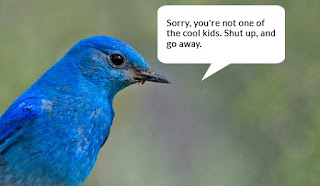Awesome videos to inspire epic classrooms
Okay, so I realize that everyone and their sister, at this point, has posted their own curated roundup of videos on Game Based Learning and Gamification in the classroom. I'm certainly not doing anything new here. Occasionally, though, I want to share with a colleague or fifty, during workshops or conferences, my cannon of inspirational videos of gaming goodness. It's just more simple to put them all in one place, so here they are. Ultimately, these videos speak for themselves. I'll keep my commentary to a minimum. I will say that these videos actually started me down the path of actually taking games and game design seriously in my classroom. If I hadn't seen Chellman & Mcgonigal's TED talks one fateful day in 2011, I never would have attended break out sessions on games and gamification with Jeff Mummert at the first Tech.it.u or taken an online course called, " Simulations and Gaming Technologies for the Classroom ". I certainly wouldn't be...


